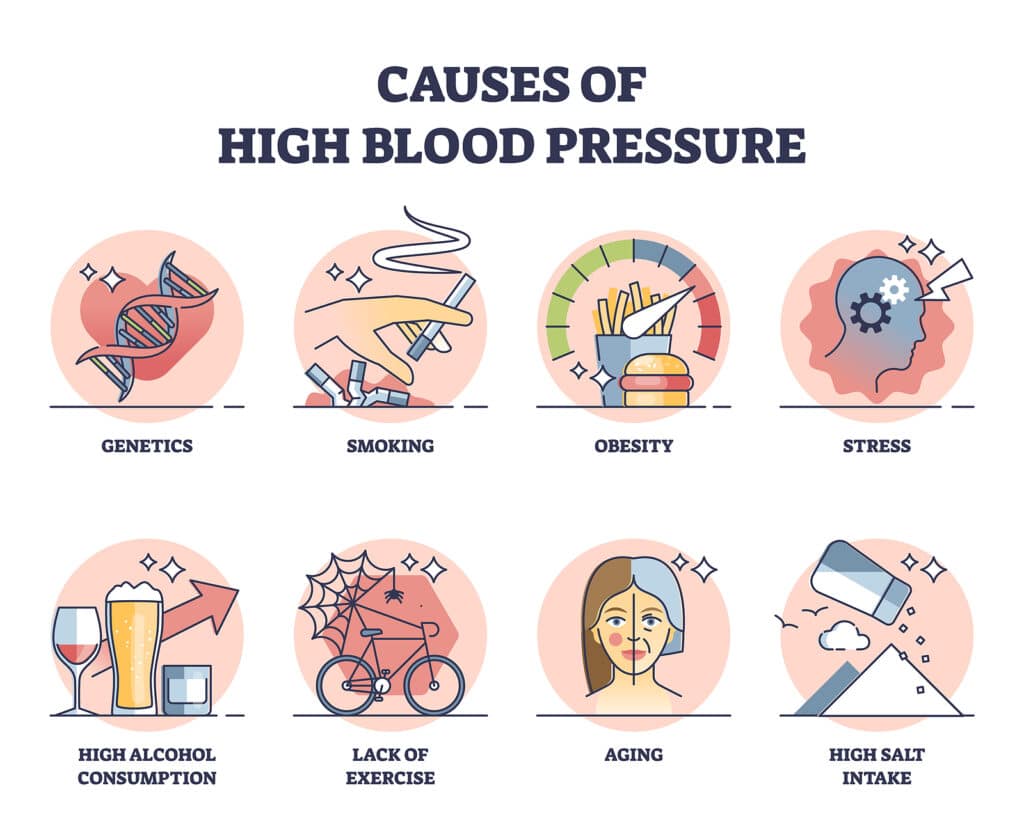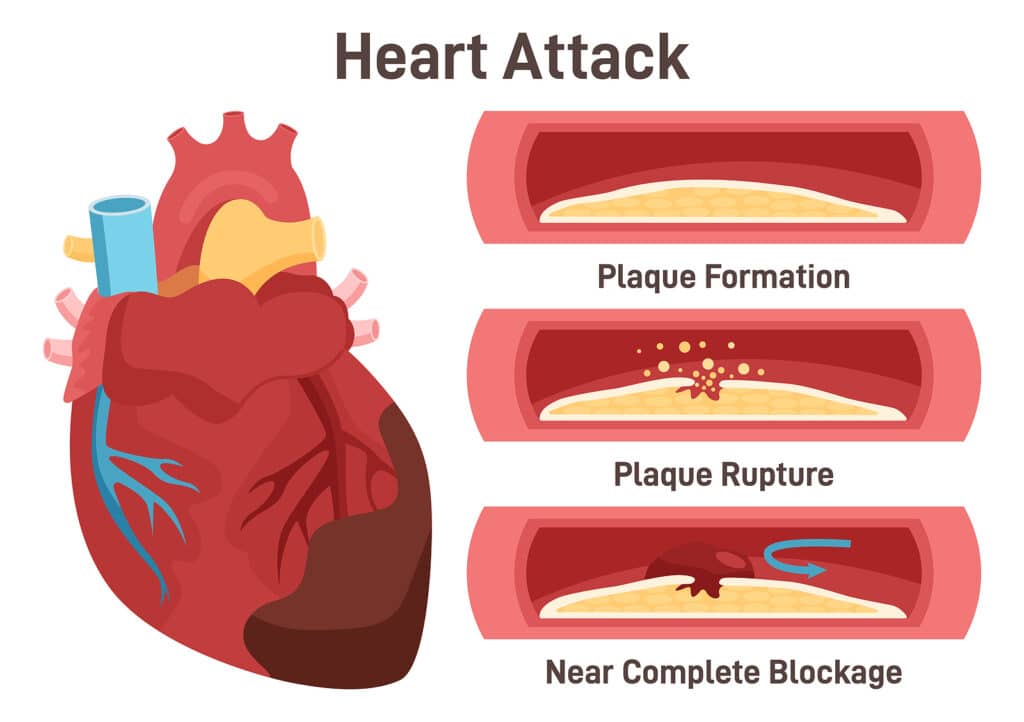
Nearly half of all American adults are affected by high blood pressure, also called hypertension. This extremely common condition occurs when the effort or pressure for your heart to pump blood into your arteries throughout your body is above a healthy range.
Blood pressure is measured with two numbers. These two numbers are called systolic and diastolic. The systolic number is the amount of pressure from your heart beating or pumping, and the diastolic number is the amount of pressure occurring when your heart relaxes. These two numbers are determined with a special device: a blood pressure cuff. This cuff is typically placed on your upper arm or your wrist.
Refer to the table below to understand whether your blood pressure numbers fall in a healthy range. Normal blood pressure should be 119 (or lower) over 79 (or lower). Elevated blood pressure will be 120-129 over 79 or lower. Stage 1 Hypertension is 130-139 over 80-89, and Stage 2 Hypertension is 140+ over 90+. If either of your numbers are higher than 180 (systolic) and/or higher than 120 (diastolic), consult your doctor immediately.

There are links and factors that are commonly associated with high blood pressure thought like:
These factors may be strange to link to high blood pressure, but smoking, for example, constricts your blood vessels, making your heart work that much harder to pump blood through your body. That’s a direct effect. Other links are proven, but are difficult to explain. Regardless of the link or cause above that impacts your blood pressure, some are lifestyle factors you can change (lack of exercise, or a smoking habit), and some are simply unchangeable (such as your age or race).
Not all high blood pressure, or hypertension, is linked to the above factors. Sometimes patients experience Secondary Hypertension, which is caused by specific conditions or medications, including the following:

If you are in the elevated or mild hypertension category, you should continue monitoring and taking steps to lower your blood pressure. Even mild high blood pressure still makes your heart work harder and can put you at a higher risk for heart attacks. Having high cholesterol can be related, as well. (If you have clogged arteries with narrow passages, it will take a lot more pressure to pump the blood through your body.)
Take steps toward improving your health through lifestyle changes, including diet and exercise. With your diet, it’s best to focus on lowering your sodium and alcohol consumption, decreasing your caffeine intake, and drinking more water. In terms of habits, quit smoking and start exercising!
The best way to lower your sodium intake is through dietary changes—eat more fruits and vegetables, and try following the DASH diet. Mayo Health even has sample menus on its site. Use a food tracker to give you better insight into your daily sodium intake and figure out how to season your food without salt, such as using Mrs. Dash seasonings. Fast food is typically not helpful in cutting sodium and sugar. Avoid it. Avoid energy drinks and sugary coffee drinks, as they’re often high in caffeine and sugar.
In some cases, medication may be necessary to help your hypertension. Some high blood pressure patients find that these lifestyle changes can help, but they may still struggle to reach a healthy range with their blood pressure. Your doctor can prescribe different blood pressure-lowering medications that can help you while you adjust to the different lifestyle changes we mentioned above. A cascade of potential health improvements can roll down when you make small changes, one step at a time. Together, medication and these lifestyle changes can help your blood pressure reach a normal, healthy range, and you can focus again on the things (and people) in your life that you’re making these changes for!
Hypertension, or high blood pressure, is an extremely common condition. At each new patient appointment in our chiropractic office in Redmond, we take your blood pressure to ensure you’re within a healthy range—many patients have no idea that they have high blood pressure. We’ll also take your blood pressure periodically throughout your care to make sure nothing has changed (or to check for improvement and celebrate with you)! If your blood pressure is high, we will make recommendations to change your lifestyle and may refer you to your primary care doctor. Taking care of yourself now will have an impact for years to come.
Copyright @2025 Element Chiropractic — 875 SW Rimrock Way Suite 103, Redmond, OR 97756